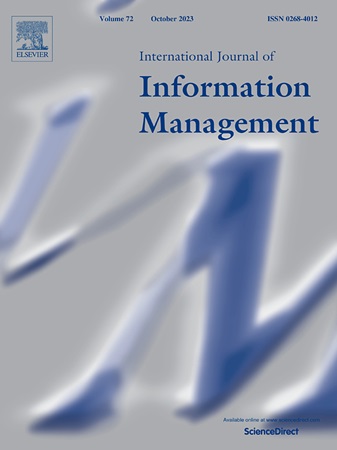在开源软件开发中增加开发人员的代码责任观念
IF 27
1区 管理学
Q1 INFORMATION SCIENCE & LIBRARY SCIENCE
International Journal of Information Management
Pub Date : 2025-09-09
DOI:10.1016/j.ijinfomgt.2025.102974
引用次数: 0
摘要
开源(OS)软件项目依赖于高质量的代码,这使得开发人员参与审查他们的代码对于提高其质量至关重要。在非操作系统领域,正式的后果(例如,制裁和奖励,如罚款或奖金)通常用于提高开发人员对其代码的感知责任,从而激励他们审查它。然而,在操作系统领域,这种正式的结果通常是不存在的,或者只是很弱地宣布,这就提出了开发人员是否以及如何认识到他们对代码的责任,以及它如何影响他们提高代码质量的动机的问题。采用发展混合方法研究方法,我们通过半结构化的在线访谈进行了定性研究,以开发研究模型(n = 29),并通过后续基于场景的因子调查(n = 480)对其进行了验证。我们的发现表明,在操作系统领域,开发人员通常认为自己对自己的代码负责。与项目和个人相关的因素,如贡献代码的法律责任、OS软件项目与其他项目的集成、开发人员的工作状态,以及获得代码贡献的声誉,都表现为影响和增加开发人员感知代码责任的机制。此外,我们观察到,感知到的代码责任促进了开发人员在将其贡献给OS软件项目之前审查其代码的意图,因此,贡献更高质量的代码。总的来说,我们的论文有助于信息系统(IS)对操作系统软件开发中责任观念的研究,表明在操作系统领域,制裁和奖励等正式后果对于唤起开发人员感知的代码责任和提高代码质量并不是唯一必要的。本文章由计算机程序翻译,如有差异,请以英文原文为准。
Increasing developers’ code accountability perceptions in open source software development
Open source (OS) software projects rely on high-quality code, making developers’ participation in reviewing their code essential to improve its quality. In non-OS domains, formal consequences (i.e., sanctions and rewards like fines or bonuses) are usually applied to raise developers’ perceived accountability for their code, thus motivating them to review it. However, in the OS domain, such formal consequences are often absent or only weakly pronounced, raising questions of whether and how developers perceive accountability for their code and how it affects their motivation to improve its quality. Using a developmental mixed-method research approach, we conducted a qualitative study with semi-structured online interviews to develop a research model (n = 29) and validated it through a follow-up scenario-based factorial survey (n = 480). Our findings indicate that in the OS domain, developers often perceive themselves accountable for their code. Project- and individual-related factors, such as legal liability for contributed code, the integration of the OS software project into other projects, the work status of developers, and gaining a reputation for code contributions, appear as mechanisms to influence and increase developers’ perceived code accountability. Furthermore, we observe that perceived code accountability promotes developers’ intention to review their code before contributing it to OS software projects and, thus, contribute code with higher quality. Overall, our paper contributes to information systems (IS) research on accountability perceptions in OS software development, indicating that in the OS domain, formal consequences such as sanctions and rewards are not exclusively necessary for evoking developers’ perceived code accountability and increasing code quality.
求助全文
通过发布文献求助,成功后即可免费获取论文全文。
去求助
来源期刊

International Journal of Information Management
INFORMATION SCIENCE & LIBRARY SCIENCE-
CiteScore
53.10
自引率
6.20%
发文量
111
审稿时长
24 days
期刊介绍:
The International Journal of Information Management (IJIM) is a distinguished, international, and peer-reviewed journal dedicated to providing its readers with top-notch analysis and discussions within the evolving field of information management. Key features of the journal include:
Comprehensive Coverage:
IJIM keeps readers informed with major papers, reports, and reviews.
Topical Relevance:
The journal remains current and relevant through Viewpoint articles and regular features like Research Notes, Case Studies, and a Reviews section, ensuring readers are updated on contemporary issues.
Focus on Quality:
IJIM prioritizes high-quality papers that address contemporary issues in information management.
 求助内容:
求助内容: 应助结果提醒方式:
应助结果提醒方式:


